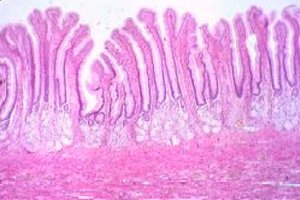
All iLive content is medically reviewed or fact checked to ensure as much factual accuracy as possible.
We have strict sourcing guidelines and only link to reputable media sites, academic research institutions and, whenever possible, medically peer reviewed studies. Note that the numbers in parentheses ([1], [2], etc.) are clickable links to these studies.
If you feel that any of our content is inaccurate, out-of-date, or otherwise questionable, please select it and press Ctrl + Enter.
There is a method to reverse insulin injections for diabetics
Last reviewed: 02.07.2025
 ">
">A large number of patients with type II diabetes can be helped to give up insulin injections: this will be helped by a minimally invasive endoscopic method, proposed this fall at the next UEG Week 2020 event.
Scientists from the Center for Medicine at the University of Amsterdam in the Netherlands studied the effectiveness of an innovative minimally invasive procedure involving remodeling of the mucous tissue of the duodenum. Simultaneously with the procedure, patients took antidiabetic drugs (antagonists of the receptors of the glucagon-like peptide-1 GLP-1 RAs) and led an exclusively healthy lifestyle. The primary experiment involved 16 patients suffering from insulin-dependent diabetes mellitus type II.
The endoscopic DMR method was performed on an outpatient basis using wire catheterization. During the procedure, doctors performed lifting and ablation of the mucous tissue in the duodenum. It is known that the mucous structures of the intestine are pathologically changed due to an unhealthy lifestyle and poor nutrition with increased consumption of sugars and animal fats. Negative factors affect the production of essential hormones, including those that affect insulin resistance and provoke the development of diabetes. Special tissue remodeling of the duodenum helps to start the cells in a new mode and restore the process of hormonal production.
The research work demonstrated that about 3/4 of insulin-dependent patients with type II diabetes, participating in the experiment of the therapeutic endoscopic method, lost the need for insulin injections after six months. Laboratory values of glycated hemoglobin in such patients decreased from 7.5% to 6.7%, which indicates positive diabetic compensation.
Participants with a satisfactory response to remodeling therapy also showed a significant decrease in BMI (body mass index) – from approximately 30 kg/m² before the experiment to 25 kg/m² within a year after treatment. In addition, a percentage decrease in liver fat was found – from 8% to 4.5% within six months. Fatty liver disease is one of the main risk factors for the development of insulin resistance syndrome, which includes high blood pressure, weight gain, and impaired lipid metabolism.
The 25% of participants who did not show a response to the remodeling treatment continued to administer insulin. However, the average daily dose of the drug for them was reduced by more than half (from approximately 35 U before therapy to 17 U during the year after the procedure).
According to one of the co-authors of the work, Suzanne Meiring, the new method fundamentally changes the approach to diabetes treatment. A single procedure in combination with sugar-lowering drugs and dietary correction is often enough to stop insulin injections and improve metabolic processes in the body of patients. Most patients after the study were able to complete insulin therapy, which is also accompanied by negative side effects - in particular, weight gain and signs of hypoglycemia.
Scientists will soon announce a more extensive scientific study.
More information about the experiment can be found on the Medicalxpress website page
